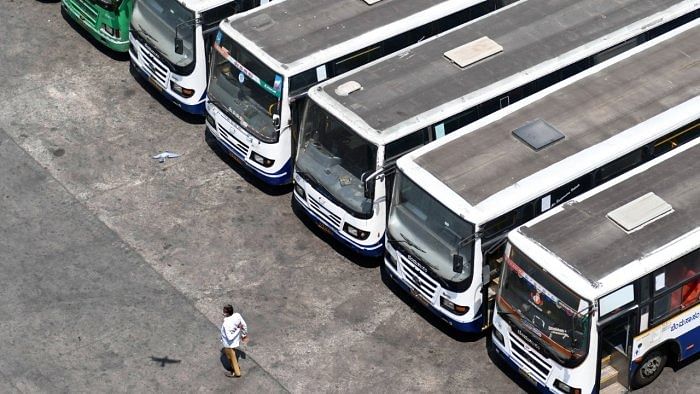
Upgrade the public transport infrastructure in the city once the pandemic wanes. This is the collective demand from most Bengalureans, as DH takes a deep-dive on the critical issue.
Sinduri Sappanipillai, a resident of Indiranagar, has this to say: “In a highly populated city like ours, a majority of people prefer public transport to private if it is in good shape. Yes, there will be a section of people interested in purchasing used and new vehicles. But their capacity to do so has come down due to income levels that have declined.”
On people’s expectations about public transport, she lists cleanliness, sanitisation and hygiene as priority areas. “Next is the frequency of public transport. People will want to avoid waiting in public places for long hours. Systems such as smart cards will also be helpful, wherein people can avoid exchange of cash,” she elaborates.
Besides, says Sinduri, “A good multimodal system to cover the first and last miles would encourage more people to take public transport.”
She also speaks about the sales of used vehicles. “Last year, the demand for second-hand vehicles was tremendously high compared to new sales. This is mainly owing to the affordability of used cars. People are interested in personal mobility and also do not want to spend huge amounts on buying new vehicles.”
Yelahanka New Town resident Ananya N K, notes: “Well, because of the pandemic some might think of lying low for a while and not making huge expenses. Maybe that is why the percentage of vehicle registrations is so low. But that does not mean they may be willing to take public transport. Probably they choose to use cabs and bikes.”
She adds, “I doubt whether people who have bikes and cars are willing to make the switch to public transport. It is just a matter of comfort and not a matter of ignorance.”
To ensure that more people switch to public transport, Ananya says, there is a dire need to increase the number of buses on certain routes. “Unless that happens, common people may not choose public transport. Even if they cannot afford their own vehicles, they may not automatically opt for buses due to the waiting time, and the crowds inside.”
Business associate Pavithra V says, “Many of my relatives had planned to buy cars and two-wheelers but unfortunately this pandemic shook our economy as well their incomes too. Due to insufficient funds they weren’t able to buy their desired vehicles. I doubt whether this will change even for the next two years.”
The Government, she feels, should help those who cannot afford their vehicles to shift to public transport in big numbers. “It should reduce bus, auto and cab fares, to make it affordable for all classes of people.”
Srinivas S, who works as a spares executive, talks about the prevailing uncertainty. “The situation now is nothing like before. People are afraid to take public transport. Automobile sales might be low now. But it will see a boom after this pandemic. Many will buy cars. I too am planning to switch from my two-wheeler to a car.”
A car, he says, is much more economical in the long run, and offers better safety than bikes. “Only thing that irritates me is the condition of roads in Bengaluru. The government can buy new buses from the money they collect from people. But what about the public whose vehicles are damaged due to poor roads?”